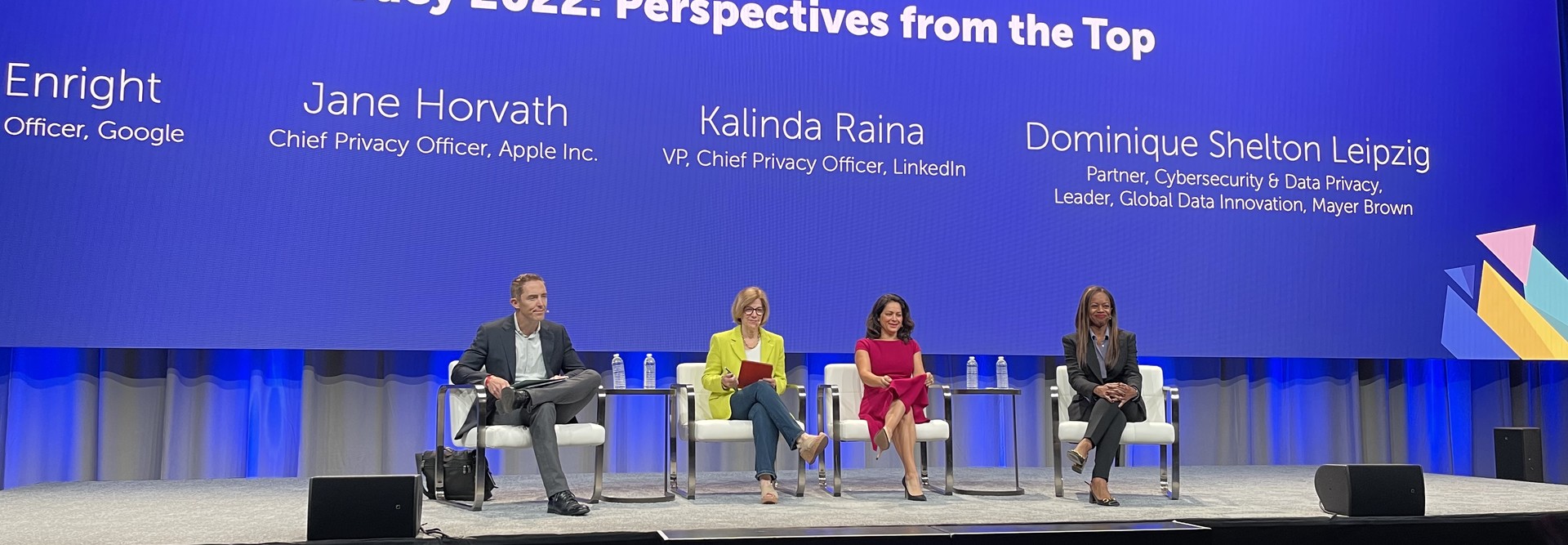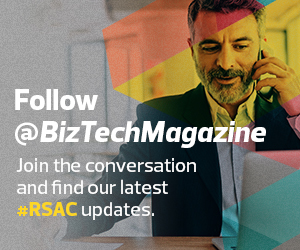Technological Progress Depends Upon Consumer Trust
In a separate panel discussion on the current state of data privacy, Kalinda Raina, vice president and chief privacy officer at LinkedIn, noted what she called a “really exciting shift that has been happening with people’s awareness and judgment of companies based on how they’re handling data.” She said she believes that “as we head into the next 20 years, the things that are possible are only going to be possible with people’s trust, and people’s trust in the organizations that are doing those things.”
Dominique Shelton Leipzig, who moderated the panel, pointed out the overwhelming volume of data companies must manage, noting that it’s being created at a rate of 2.5 quintillion bytes per day. “I understand that there are 127 new connected devices that are being created and innovated per second. So, every day, about 11 million new connected devices come online,” Leipzig said.
Raina acknowledged the tremendous volume of data being created, which she said has forced organizations to think about its governance. “How do we annotate this data? How do we keep track of it? How do we put policies on it? How do we make sure it’s deleted in an automatic fashion? How do we put access controls in place?” she said.
Jane Horvath, chief privacy officer at Apple, suggested technology might be the solution to some data privacy issues. “As far as data goes, there is a different range of data that could be impactful. So, data that is not tied to an identity is a whole lot less risky than personal information. So, one of the things that we’ve worked deeply on at Apple is trying to use privacy-enhancing technologies to minimize the amount of personal information that we collect.”
READ MORE: Learn about the many challenges IT leaders face in a work-from-anywhere world.
Can Federal Legislation Help Restore Trust in Data Privacy?
The panel was made up of data privacy officers from Apple, LinkedIn and Google, global organizations already subject to data privacy requirements under the European Union’s General Data Protection Regulation (GDPR). As Leipzig mentioned, a draft of American legislation was introduced June 3 for consideration by Congress.
Raina said she views the legislation as a powerful tool in keeping data private. “I think one of the things that we are seeing potentially happening if we do get federal legislation here in the U.S. is the requirement of privacy by design. We’ve already seen it develop in our GDPR laws. But we might also be able to see that here in the U.S. as well, which I think would be a real opportunity for growth in the profession, from the engineering perspective of folks who have both that privacy stance and the security stance, to build that into products so that we really ensure we’re building with trust.”
Keith Enright, chief privacy officer at Google, said he also envisions American legislation as an opportunity. “There is growing interest in the investment community to understand how you are thinking about privacy, not only as you define your company's role in society and sort of defining your own sense of social responsibility but also in the way that you’re thinking about it as a risk factor for your company.”
“If you are building appropriate governance and accountability systems into your company, to ensure that as both an opportunity and a risk, you’re appropriately anticipating engaging with, preparing for and addressing privacy in your product strategy and your corporate vision,” Enright said.














